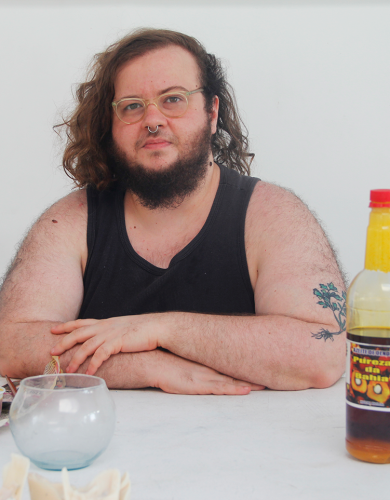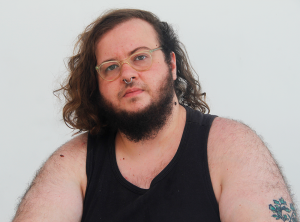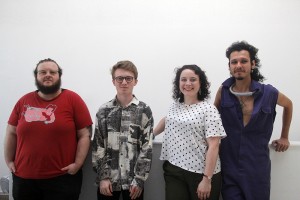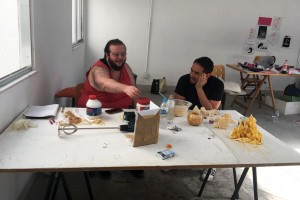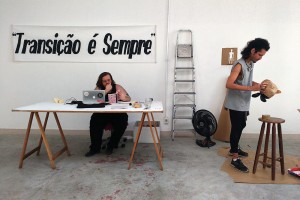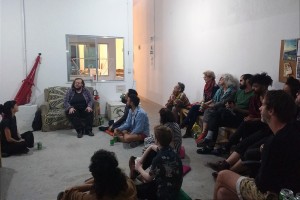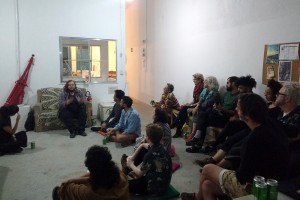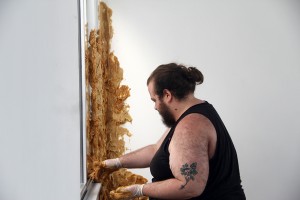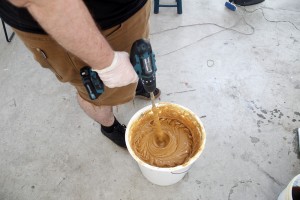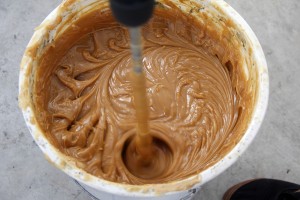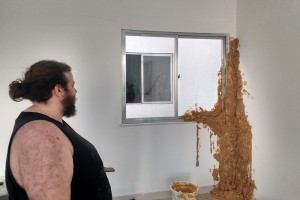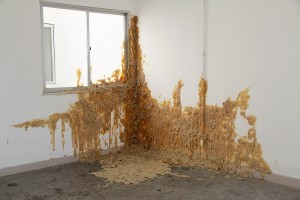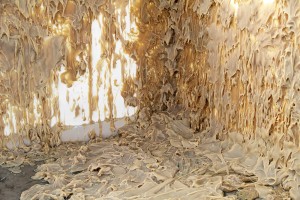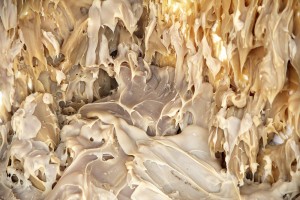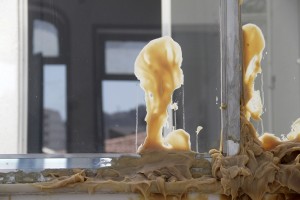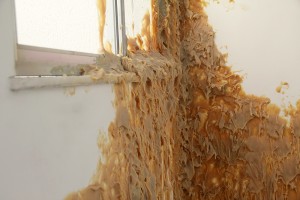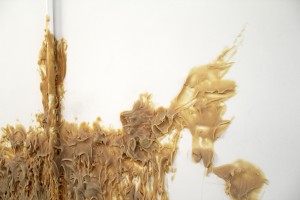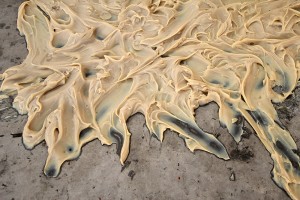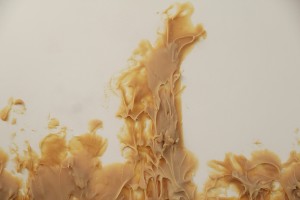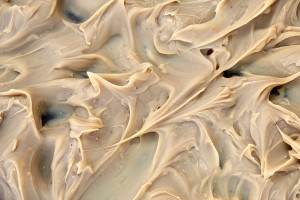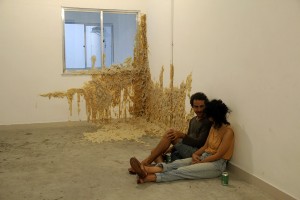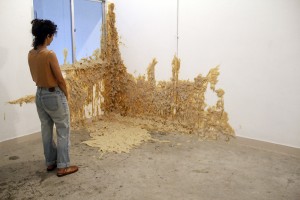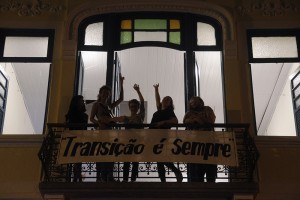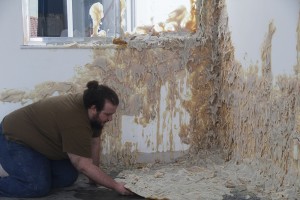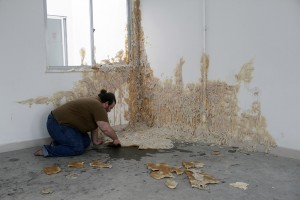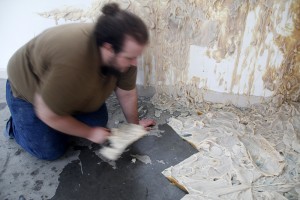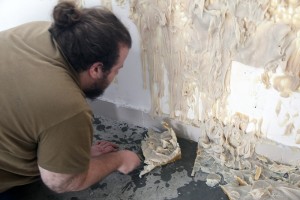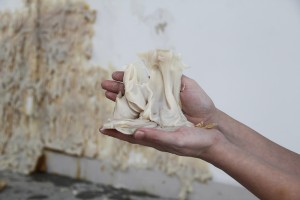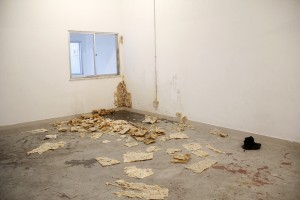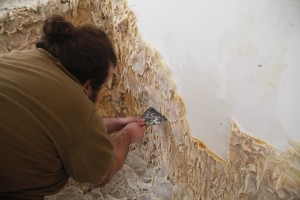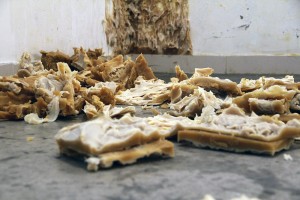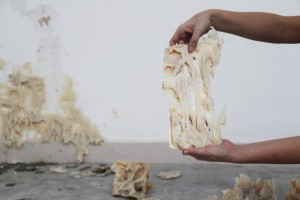Lives and works in Rio de Janeiro, Brazil. He holds a Master’s Degree in Performance from the Performing Arts PhD Programme at UFRJ (Universidade Federal do Rio de Janeiro). Currently, Spinelli is investigating how performance and its radical connection with materiality, writing and dissent can generate forces on the subjects, creating possible counter-ontologies. Since 2014, he has been developing the continuous project and series “Gordura Trans” (“Trans Fat”), mixing performance, photographs, texts and installations.
This project has been presented in several Brazilian cities and abroad with the collaboration of artists such as Fernanda Magalhães, Jota Mombasa and Jup Pires. In 2017, he was awarded a scholarship (along with artist Luisa Marinho) to take part in a residence programme at the Andreas Züst Library, in Switzerland, where they developed together the “Chupim Papers”, which shed light on themes such as precariousness, abjection, decoloniality, politics of affection and transgenderism, focusing on the body and its poetics and political potencial.
Miro Spinelli’s residence was commissioned by the British Council and Creative Scotland under the Open Bodies Residency programme, designed jointly by Despina and The Fruitmarket Gallery. More information here.
***
Curatorial statement by Guilherme Altmayer
Miro Spinelli develops his artistic research from his own body and from the traces left by it, to think about states such as abjection and precariousness. In the “Gordura Trans” (Fat Trans) series, composed of performance actions (seventeen performed to date), Miro presents his naked body in contact with various types of media such as soybean oil, grease, butter and palm oil. The particular material for each action is chosen with political consideration for the geographical and social context in which the action is presented. While smeared in oily, greasy, sticky substances, the artist moves in an unpredictable way, with care and difficulty, dissolving the boundary between his body and the space and simultaneously establishing a relationship with the public by making eye contact. In the Open Bodies residency at Despina, Spinelli broadened his field of investigation from the Gordura Trans series to explore substances changing in chemical reaction, and made traces beyond, but still inseparable from, his body. Using as a base many litres of recycled cooking oil, caustic soda and water, he produced soap in large quantities. Common sense makes us think of soap as a symbol of cleanliness and hygiene. However, here with soap the artist invades the gallery space to spoil, a stain soiling the white cube in a spread from one of its corners. The stain makes reference to the colour of skin, visually presenting many different shades. These are imagined skins that live as part of diverse bodies, which provoke a rethink of polarising description, they blur categories (as well as corners), and open up cracks onto many other places that there might be to situate oneself in the world.
***
Pictures Gallery (horizontal scrolling)
by Frederico Pellachin
